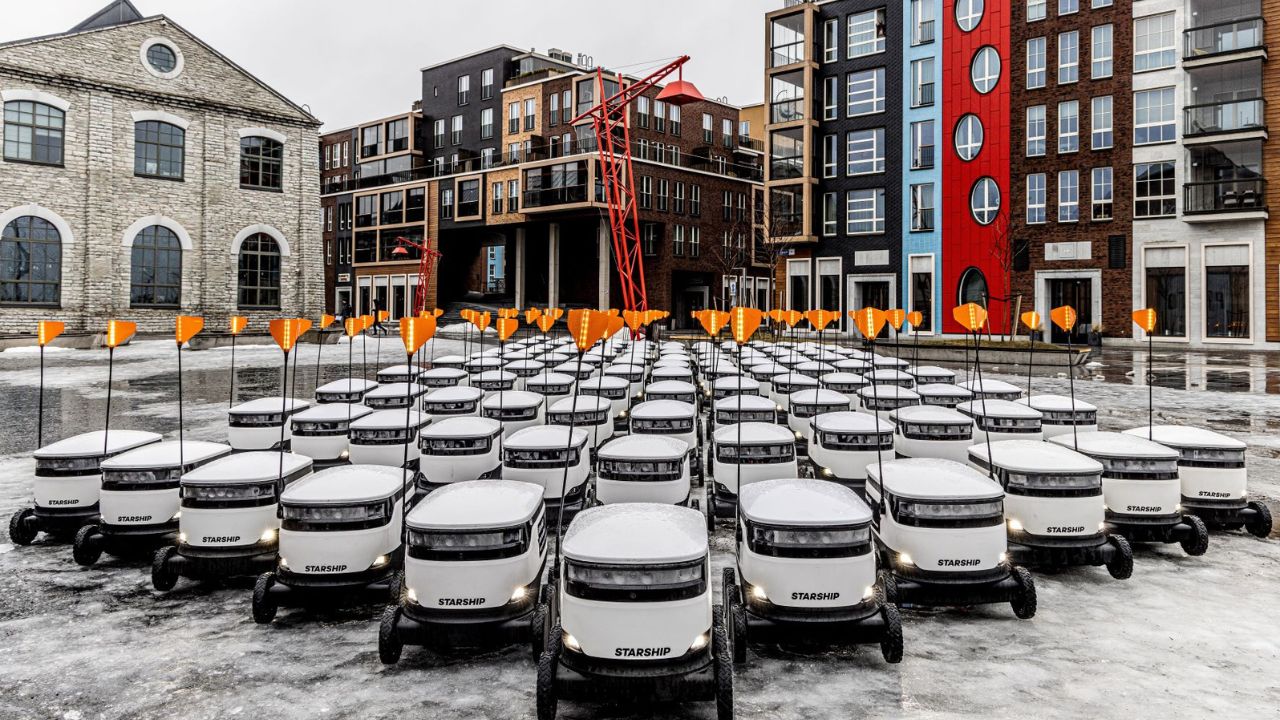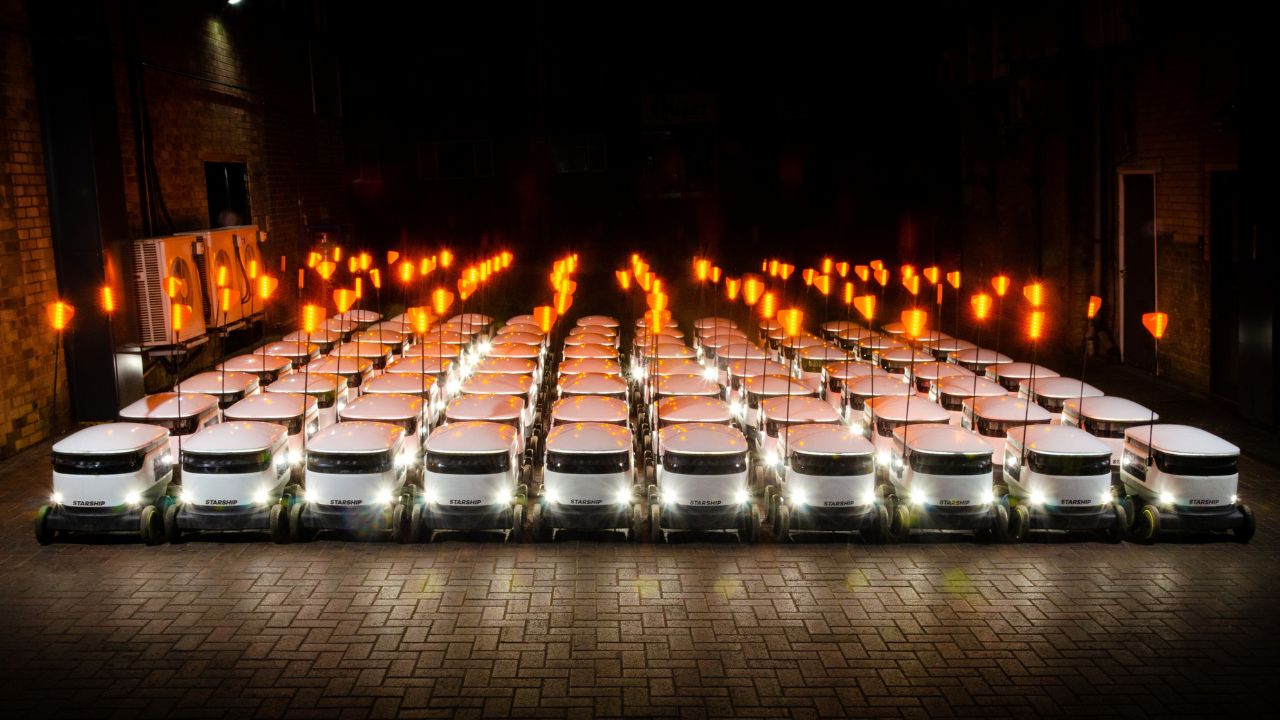The autonomous delivery robots are taking to the streets of UK town of Sale, in Greater Manchester this week as Starship Technologies announces a new partnership with Trafford Council and Co-op.
The service will initially be available to 24,000 residents across 10,500 households - orders are made via Starship’s widely available food delivery app.
“We are very pleased to offer the benefits of autonomous delivery to thousands of residents in Greater Manchester from today and continue our expansion in the north of England. The robots provide ease and convenience for people, while also making a positive contribution to reducing congestion and carbon emissions," said Andrew Curtis, UK Operations Manager at Starship Technologies.
"We are confident that the service will be well received and look forward to a long-standing relationship with Trafford Council to hopefully roll the service out further in the months ahead,” he adds.
Greater Manchester marks the ninth location for Starship in the UK, it all started with Milton Keynes nearly five years ago and now can also be found in cities in US, Estonia, Germany and Denmark.
Starship Technologies was founded by Janus Friis and Ahti Heinla in 2014 and has raised a total of $197.7 million over six rounds. The company's latest funding, a Series B round was announced in early 2022.
It has a rather appealing delivery fee which starts at 99p in the UK.
These battery-powered workers, travel at the speed of a pedestrian, and using a combination of sensors, artificial intelligence, and machine learning they are able to navigate the footpaths of their neighbourhood. The robots have safely completed more than four million deliveries around the world - undertaking 140,000 road crossings every day.
“We're actually just getting started - we are already lower cost than delivery by courier – that is a big milestone that we reached in the last five years - economics in logistics is everything,” says Ahti Heinla, co-founder and CTO of Starship Technologies.
They are an impressive sight when navigate the snowy pavements of Tallinn, Estonia, which is their birth place, home to Starship’s R&D facility.

Next month will mark five years of commercial operations for Starship Technologies as Heinla reflects on what Starship has learned along the route.
“The biggest challenge I think we have had is how to grow quicker - how to accelerate our rate of expansion. We need to make more robots, we need to make the service more scalable so that they can operate on a larger scale,” Heinla says.
“Developing autonomous logistics technology - is not actually something that happens easily. It's not like there was a whole ecosystem out there to provide services - we had to develop all of that ourselves."
Introducing a new technology to the public undoubtedly has its challenges but it certainly helps when you have them onboard from the start.
“One thing that has surprised us the most over time is how friendly people are towards the robots. It's really a different experience to receive a delivery from a delivery robot, rather than a human courier,” he says.
This is very true, how often have we all had those awkward deliveries where we don’t know which door they are arriving at? Or the tumbleweed of silence that drifts by when you attempt to make small talk as you try to retrieve your items without accidentally touching fingers?
“The robot has time for you. You always know exactly where the robot is, the robot is completely non-threatening, and completely neutral - there is only this positive emotion - it does say thank you. People like it a lot, that's something that we did not anticipate, to that extent when we started the company,” he explains.
Of course there is the rise of new delivery services on the horizon, our skies will increasingly be filled by the gentle (or not so) hum of delivery drones if legislation ever gets approved for commercial services. Will drone delivery have an impact on autonomous ground delivery services?
“I think autonomous logistics will be done with multiple different modes of transport, both on the ground and in the air,” he says. “When we were starting out people thought that it’s easier to transport things over the air with the drone – they do not need this complicated autonomous driving system that we would need on the ground, but we have solved the autonomous driving system, it already exists - I think we will have the upper hand going forward.”



Would you like to write the first comment?
Login to post comments